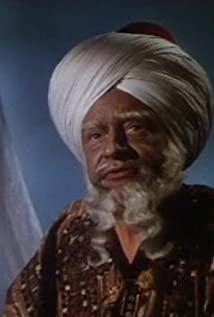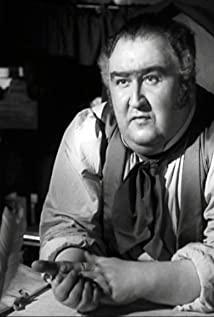Although this old movie is black and white, it seems to me that it respects the original book. The childhood Estella is very beautiful, and she is also the heroine Jane Simmons in the movie "Spartacus", which plays Pip. His good friend is the arrogant and rigid officer in "The Bridge on the River Kwai", a typical example of dogmatism.
The novel "Great Expectations" has been read a long time ago, except that it seems to be a story about an orphan's adventure, but I can't remember it clearly. For a while, I mixed "Great Expectations", "Blood and Tears from a Lone Star" and "David Copperfield", and felt that they were all about orphans, probably because the first half of Dickens's life was rough, although everyone All of them have parents, but in fact, many people's childhood circumstances and experiences are similar to orphans, so Dickens likes to use orphans as the protagonists of the story, and hopes that every unfortunate child can have a happy and happy ending. In fact, this story, like many fairy tales and fairy tales at home and abroad, tells the story of a good man who is rewarded. Dickens has a simple idea of karma, which has something in common with the karma in Buddhism. The young orphan Pip sowed the seeds of goodness because he had helped others by accident, a fugitive, even if not willingly, but had a good nature after all. He had always thought his luck came from the eccentric and wealthy old lady Havisham, only to discover later that his luck had come from a fugitive he helped as a child. Everyone in this story is inextricably linked, and it fully illustrates that the world is big, but it's actually very small. Therefore, whether a person's behavior is good or evil, somehow affects the hand of fate. This may be a clever arrangement by Dickens, but it is also a reflection of real life, in fact, many things in the world are written by coincidence. It's such a coincidence that the prisoner Pip rescued as a child was his beloved Estella's father. And what connects all of this is Pip's kindness. Although the repayment we got later was too bizarre, and good deeds in life are sometimes done by hand, we should not expect anything in return, because kindness is valuable, but we might as well regard all this as an orphan's fairy tale, and believe that kindness will be rewarded. Because kindness can arouse people's love and beautiful feelings, the return of love is the greatest return to kindness. Havisham's adopted orphan, Estella, is a beautiful and perverse girl. She can be described as "beautiful and frosty". For a long time, I didn't like Estella, because she was very fond of poor people. Pip is ruthless and cold, always laughing at him and ridiculing him, but Pip likes her, loves her, and is tortured miserably by her.
This is probably a law of love. People like people who don't like them, and they like to be tortured by people they like. Such abuse is not uncommon in real life. A timid little boy suddenly came to a wealthy environment and met a beautiful girl. The girl couldn't help but have a halo around her. It was the first time the little boy saw a beautiful opposite sex, and he also felt inferior to himself. Yearning for a better life and identity. Estella is Havisham's tool to take revenge on men. This Havisham and Li Mochou in the martial arts novels are quite similar. In the cobweb's villa, she also passed on her perversion and cruelty to Estella. When Havisham cried and complained that Estella was ruthless and had no feelings for herself, Estella still said something coldly, because she had not remembered it for a long time, and the meaning of the sentence was this, "You paid I get what I want, I never got love, I can't give what I never got." Yes, Estella is ruthless, but isn't Havisham herself responsible for her character? She passed on her misfortune, her pain and distortion to Estella, who turned into a beautiful but ruthless monster, and her heart was full of contempt and indifference to the world. She told Pip not to fall in love with her, but in fact she didn't want to hurt him. Havisham didn't teach her how to love someone, only how to hurt others, but she didn't know how to love Pip, who was kind and loved her. He didn't want to hurt him. People are the product of the environment. As Havisham's adopted daughter, Estella has become a tool created by Havisham to attract people with beauty and take revenge on men with cruelty. She accomplished what Havisham wanted her to accomplish, breaking the hearts of the man who loved her, but she was equally ruthless towards Havisham. Looking back, Estella's ruthlessness has some kind of magic power. For the weakness of human nature, ruthlessness itself is an attraction.
Although Pip's parents died, his brother-in-law Joe, a blacksmith, was a very kind and simple person. It was this family atmosphere that kept Pip's kind personality.
Pip's kindness and Estella's ruthlessness have their roots in growth, which also shows that the family of origin is very important for the shaping of a child's character and character.
Although I don't like Estella's character, but her body makes people see the character formed from the misfortune and twisted life, why is there no shadow of our own? The advantages or disadvantages of the family, the environment, and the harm, accompany us throughout our lives.
And Pip, who was funded by his benefactor and wanted to become a "superior man", after becoming a "superior man", he couldn't help but despise Joe the blacksmith. Just like Estella once laughed at his poverty, money can make people Produces a sense of superiority, becomes snobbish and loses his original simplicity, until Pip's "beneficiary" identity is revealed, Pip has a conscience after all, the change of a person's identity comes from money, and its essence determines a person Will it become despicable.
When Pip lost his windfall, he was still the same Pip. When Estella's identity was revealed, they were both unfortunate and lucky people. Without the background of money, the two really realized equality. Money determines a person's identity and conditions, but a person's essence is the most important.
"Don't look at the surface, but based on the facts," the lawyer said to Pip. For many people, it is difficult to judge the truth of a thing through the external appearance.
Indeed, the essence of a person cannot be judged by wearing a gentleman's uniform or a prison uniform. Pip's kindness made the old man remember him, so he got good luck. This is Dickens' understanding and return of kindness.
View more about Great Expectations reviews











